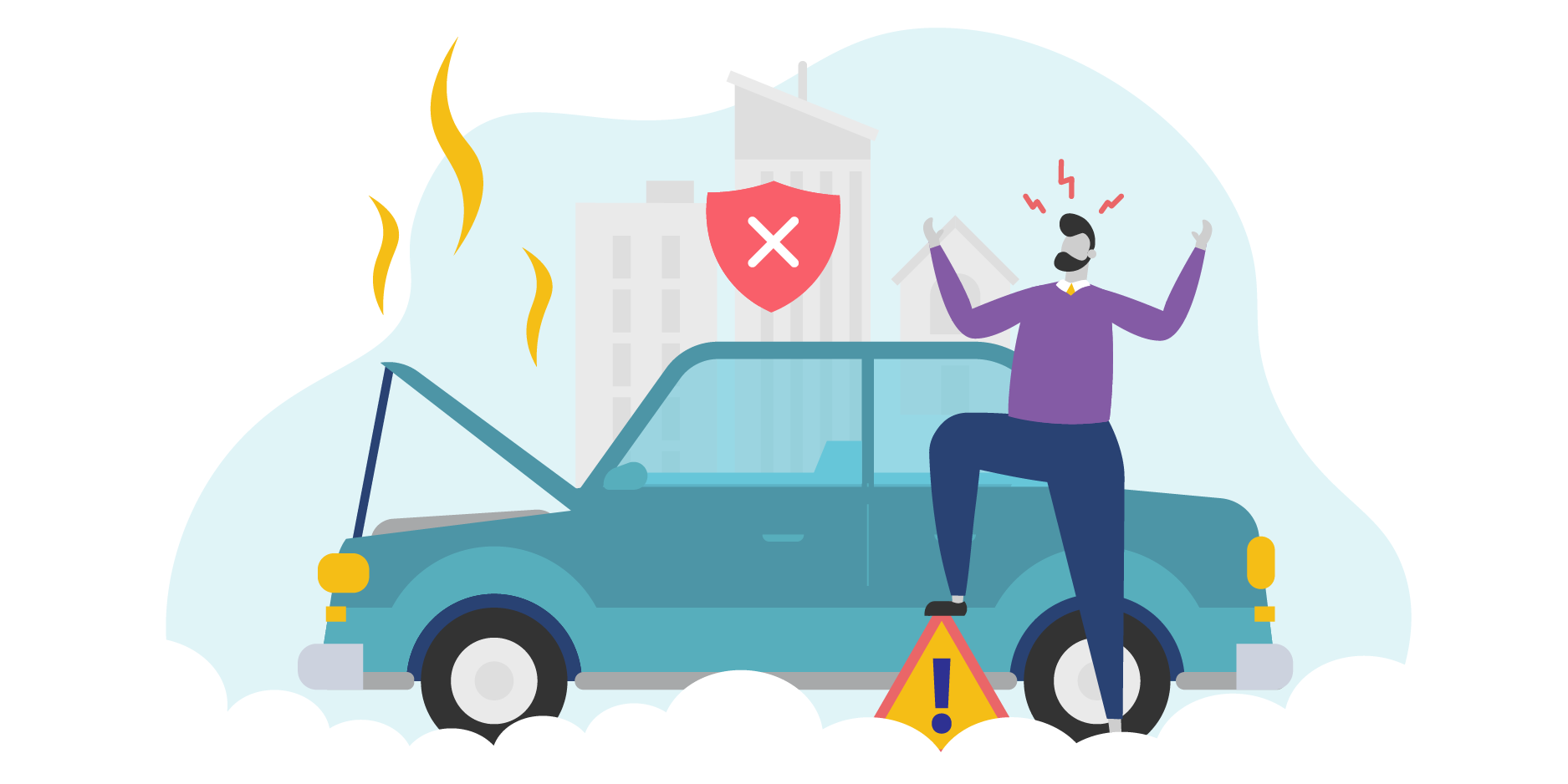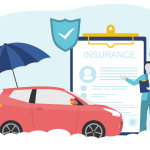Is Accident Forgiveness Insurance Worth It?
October 27, 2022

It’s impossible to predict if or when an accident might happen, and they can be inevitable, even for the most careful drivers. If you were to end up in an at-fault collision, a rise in your future auto insurance premiums would be just one of your many worries—but what if we told you there was a way you could avoid that price hike?

Accident Forgiveness Insurance could be your extra layer of protection. If you don’t want your first at-fault incident to cause an increase in your premiums, this Auto Insurance add-on might be worth considering. To help you make an informed decision, we’ve compiled some important details that you should know about accident forgiveness: what it is, who can get it, and when it applies. Keep reading to learn more!
What is Accident Forgiveness and how does it work?
Accident Forgiveness is an optional add-on to your Auto Insurance policy that will prevent your insurance company from increasing premiums after your first at-fault accident. While it does come at an extra cost, it acts as a safety net that could save you money in the long run if you do get involved in a collision.
Typically, when you’re found to be even partially at fault in an accident, your risk rating as a driver is negatively affected. That means you might see increased Auto Insurance rates at your next renewal or when you purchase a new policy. But with Accident Forgiveness coverage in place, your insurance provider won’t count your first at-fault accident against you and your premium will be unaffected.
RELATED: Only 50% of Canadians Know What to Do After a Car Accident: Do You?
Can anyone qualify for Accident Forgiveness Insurance?
No, not everyone will be able to add Accident Forgiveness Insurance to their Auto Insurance policy. Insurance companies want to limit the amount of risk they take on, so this type of add-on can only be offered to safe drivers with a proven track record.
However, it’s important to note that even if you’ve had your driver’s license for years, you’ll need to have experience as a listed driver under an insurance policy in order to be considered for this type of coverage. Specific requirements may vary between insurers, but generally speaking, you’ll have a good chance of qualifying for accident forgiveness as long as you haven’t had any at-fault or partially at-fault accidents within the past 6 years.
Will Accident Forgiveness apply for any accident?
While Accident Forgiveness is a solid safety net, it’s not a catch-all for absolutely all incidents. Here are some key conditions that can affect whether accident forgiveness will apply:
- Accident Forgiveness typically only applies for your first at-fault accident, unless you’ve been charged with a major driving conviction, in which case, it won’t apply at all. If you happen to be involved in another collision after you’ve already used up your accident forgiveness coverage, you won’t be able to avoid the resulting insurance premium increase.
- Accident Forgiveness also usually only applies to the primary driver on your insurance policy. But depending on your insurer, you might be able to purchase extra coverage for secondary drivers.
- Most accident forgiveness policies won’t cover commercial vehicles at all, so keep that in mind if you use your car for commercial purposes, such as driving for a ride-share or delivery service.
Don’t forget: every insurance company has different rules, so be sure to familiarize yourself with the details, and reach out to a broker if you have any questions.
Will Accident Forgiveness erase an accident from my driving record?
Unfortunately, Accident Forgiveness doesn’t have the power to erase anything from your record—your accident will be forgiven, but not forgotten. Accident Forgiveness coverage applies to your current insurance provider only, and it won’t exempt you from losing demerit points or being charged under provincial traffic laws either.
The incident will remain on your record and will even affect your premium if you choose to go to a different insurance company. That’s because the new insurer hasn’t forgiven your previous accident, and they’ll still take it into account when calculating your rates. However, you may be able to qualify for Accident Forgiveness coverage again if you can remain accident-free for a certain number of years (as required by your insurance provider).
RELATED: 5 Tips For Buying a Used Car
Can I transfer my Accident Forgiveness coverage from one insurer to another?
Even if you’ve qualified for Accident Forgiveness with your current insurer, you won’t necessarily be able to transfer the coverage if you decide to switch providers. Each insurance company has its own criteria when it comes to qualifying for accident forgiveness, so if you want to add it to your new policy, you’ll need to be re-evaluated under your new insurer’s requirements.
Do I really need Accident Forgiveness Insurance?
That’s up to you. After all, no one likes to see their insurance rates go up—and if you’re generally a safe driver, having Accident Forgiveness coverage in your back pocket could protect you from the long-lasting consequences of one uncharacteristic mistake.
Not all at-fault accidents need to involve multiple vehicles either; a single-vehicle accident can and will be considered an at-fault accident in the eyes of an insurance company. In Canada, it’s also not uncommon for dangerous weather conditions to heighten your risk of accidental mishaps on the road.
But will the extra charge of Accident Forgiveness coverage offset potential higher insurance rates down the road? There’s no way to predict the future, so we unfortunately don’t have the answer to that question. For strict budgeters, however, the consistent cost can ease some of the fear of unexpected premium hikes down the road.
It’s worth noting that you’ll still need collision coverage or comprehensive coverage to cover the cost of vehicle replacement or repairs in the event of an incident—Accident Forgiveness will only save you from rising insurance rates. Collision insurance covers damage to your car sustained in an at-fault accident or a hit-and-run, while comprehensive insurance covers damage caused by other factors, such as fire, theft, vandalism, and extreme weather events. In either case, you’ll need to pay your deductible before your insurance company will cover the rest.
RELATED: 7 Steps to Get Your Car Winter-Ready
Even the best of drivers can sometimes have a bad day, and Accident Forgiveness coverage is here to help. When it comes to Auto Insurance add-ons, it pays to truly understand what you’re buying. We hope that our overview of Accident Forgiveness has helped shed some light on the topic to help you decide whether it’s right for you.
Need more advice? With over 40 years of experience and a wide network of over 30 insurers, PROLINK can help you find the Auto Insurance policy that suits all your needs as well as your budget. Our dedicated advisors will survey the marketplace and guide you to the right coverage, from the right insurer, at the right price.
Connect with PROLINK today to learn more!
PROLINK’s blog posts are general in nature. They do not take into account your personal objectives or financial situation and are not a substitute for professional advice. The specific terms of your policy will always apply. We bear no responsibility for the accuracy, legality, or timeliness of any external content.




